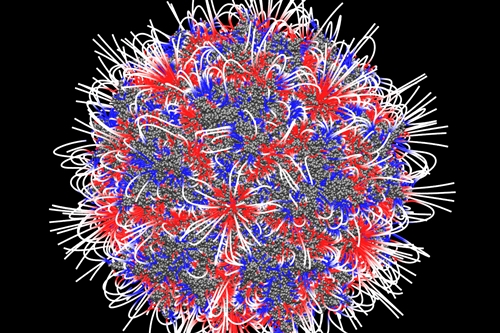13 May 2015. A collaboration between a U.S. biotechnology company and French research institute is enhancing current techniques to allow patients with rare diseases to receive multiple doses of gene therapies. Selecta Biosciences in Watertown, Masachusetts and Généthon in Evry, France plan to co-develop and co-own the results of their partnership, but financial details of the agreement were not disclosed.
Généthon is a research institute developing gene therapies for rare inherited disorders. Gene therapy involves inserting healthy genes into the diseased cells to generate proteins not being produced from mutated genes, or replace defective proteins. According to the institute, as many as 30 million people in Europe suffer from some kind of rare disease.
The collaboration plans to help make gene therapies using current delivery mechanisms more tolerable for patients, thus enabling repeated doses. Those mechanisms harness adeno-associated viruses to deliver healthy genetic material for expressing proteins missing from the mutated or damaged genes causing the disorder. Adeno-associated viruses are benign, naturally occurring microbes that can infect cells. While the viruses do not integrate with the cell’s genome nor cause disease, they can generate a mild immune response.
The Selecta-Généthon partnership aims to eliminate the antibodies and immune responses generated by viral delivery mechanisms, which will make it possible to give patients gene therapies in repeated doses. Under the agreement, Généthon plans to combine Selecta’s synthetic vaccine particle platform with its gene therapies using adeno-associated virus delivery.
Selecta says its synthetic vaccine particle technology generates biodegradable nanoparticles that direct the immune system to prevent and suppress immune responses to specific antigens, thus blocking specific immune responses without compromising an individual’s entire immune system. The company says it successfully tested the technology in preclinical proof-of-concept studies.
Selecta and Généthon believe their approach can be applied to therapies for children, whose organs are still developing. They plan to focus first on therapies for muscular dystrophies and pediatric liver metabolic diseases that use adeno-associated virus deliveries. Muscular dystrophies are a collection of diseases causing progressive weakness and loss of muscle mass, where mutations in genes interfere with production of proteins needed to form healthy muscle. Genetic pediatric liver diseases include hereditary hemochromatosis, Wilson’s disease, and alpha1-antitrypsin deficiency.
Read more:
- Gene Therapy Biotech Raises $60M in Venture Funds
- Bristol-Myers Squibb Licensing Gene Therapies in $2.3B Deal
- Biotechs Partner on Cancer Stem Cell-Gene Therapies
- Genzyme Licensing Gene Therapies from Biotech Start-Up
- Trial Testing Gene Therapy for Rare Eye Disorder
* * *


 RSS - Posts
RSS - Posts
[…] Biotech, Research Institute Partner on Gene Therapies […]